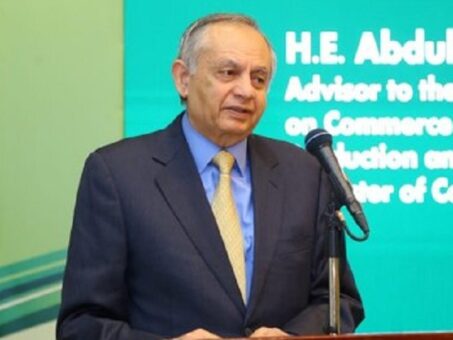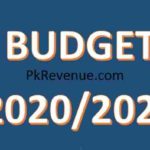ISLAMABAD: The government has prepared budget strategy under which no more amnesty scheme will be offered in future. Meanwhile, the tax threshold to broaden the tax base.
The medium term budget strategy paper 2020/2023 released by
the ministry of finance stated that the government will increase the share of
direct taxes in revenues by enforcing
real-income based income tax,
to be achieved by broadening of tax base.
Documentation of the economy to increase taxation in
wholesale and retail, real
estate and speculation businesses is also a priority. “Amnesty schemes will no longer be offered, and exemptions will be curtailed. Income tax slabs will be rationalised, and thresholds will be lowered to broaden tax
base.”
Gradual phasing out
of final tax regime will help in taxing real income. Through amendments in tax
law, simplification of laws and regulations, and improvement in tax
administration, a legal basis
will be provided to risk-based audit system.
Taxpayer facilitation measures include awareness campaign
and taxpayer education
facilitation. Investments in IT
based customer relationship management system,
support lines, emails and website will be strengthened.
Measures
will also be taken to encourage
voluntary compliance through facilitation measures and increasing certainty of detection and
enforcement of law.
Proper targeted awareness campaign
through official media houses, using commercial media means will be carried
out.
FBR is effectively using Information Technology support for
efficient detection, monitoring
and facilitation of the tax regime.
Data on foreign bank accounts of Pakistani citizens is being received and analyzed
to detect tax evasion.
IT based databank
regarding foreign bank accounts will
be established. Tracking and tracing
system for collection of Federal excises duty on cigarettes has commenced with the issuance of licenses. Electronic
monitoring of production and sales of various
sectors will also commence in
due course of time.
Installation of point-of-sale (PoS) integration on all Tier-I retailers has been enforced since 15 December 2019.The online integration of the prescribed registered persons with PoS will be enforced
through effective monitoring. FBR
is developing IT strategy for
this.
The recently launched app “Tax Asaan”
will be improved and more
features will be introduced to make it user friendly. Introduction of Corporate Income Tax (CIT)
reform will result in fewer exemptions
and crediting schemes.
The practice of issuing new preferential tax treatments or exemptions will be
discontinued so that tax exemptions as a tool for philanthropy and social, investment and export promotion are
discouraged.
Exemptions will be phased out except basic food and nutrition items and
provisions of health sector. Harmonization between Federal and Provincial
taxation regimes is to be achieved
by removing duplication of taxation and introducing uniform laws and procedures.
The constitution assigns income
taxes (except for agriculture income),
the General Sales Tax on goods, customs duties, federal excises, and the
capital gains tax to the federal level to be collected by the Federal Board of Revenue (FBR).
While, GST on services, tax on professions, Agricultural Income Tax, Motor Vehicle Tax, Urban Immovable Property
Tax, and other taxes related to real estate
(e.g. stamp duty, Capital Value Tax) are assigned to the provinces.
This arrangement
fragments Pakistan into five tax jurisdictions in the services sector, with consequences
such as double taxation, cascading effects of taxes and high compliance burden.
Work on a
unified tax portal with standardised forms that
will enable taxpayers to file
and pay federal and provincial taxes with less cost and compliance
time will be completed.
In 2020-2021,
FBR will be working on removal of structural anomalies in the taxation regime such as anomalies from SROs (Statutory Regulatory
Orders) / aligning certain
SROs with the main statute and Rules, Simplified tax returns and forms.








